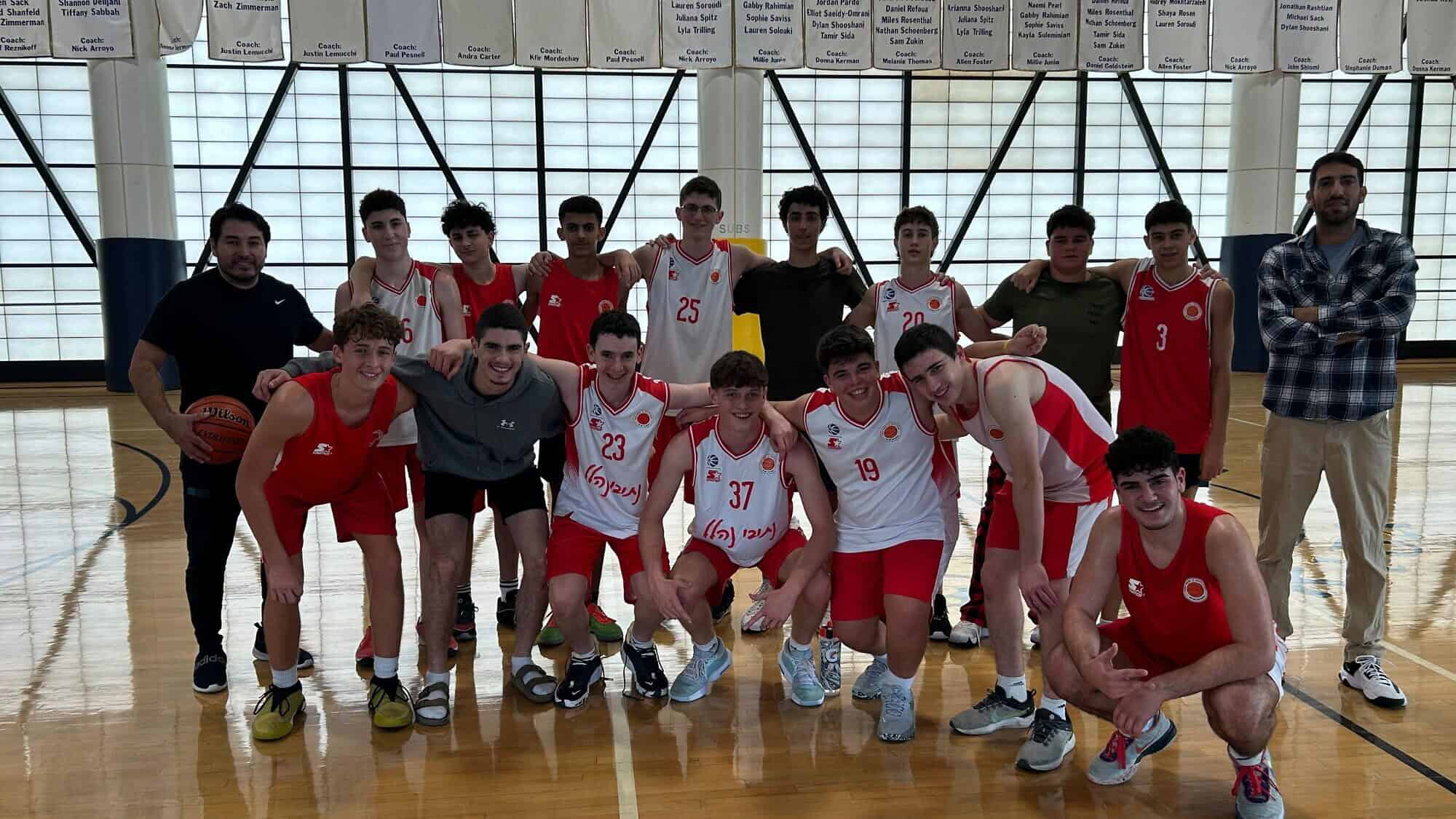“One day, I was going to be murdered by Hamas, and today, James Harden and the Clippers are applauding me,” Omer Bilansky, general manager of a basketball league for high-school-aged children in the Eshkol region of Israel, tells Rabbi Erez Sherman, senior rabbi of Sinai Temple in Los Angeles, on the court at Intuit Dome, the Clippers’ home arena.
On the jumbotron, both are shown wearing black T-shirts that read “Clippers Community Heroes” with labels to match, as the announcer tells the crowd why.
“Since Oct. 7, all the kids have been displaced, and Omer is here with 15 of his players and two of his coaches as they look to rebuild.”
Before Oct. 7, hundreds of kids from Kibbutzim bordering the Gaza Strip played basketball together.
After Hamas' brutal attack, they were evacuated after experiencing untold atrocities.
One team has reunited in Los Angeles, and were just honored by the @LAClippers pic.twitter.com/yiTW9o55Wg
— Jewish News Syndicate (@JNS_org) December 6, 2024
Bilansky, two coaches and 15 Israeli high-schoolers arrived in Los Angeles on Sept. 30 for a week-long trip that included NBA games, a tour of Universal Studios and a game against a local Jewish day school (they wound up losing).
The team hailed from different kibbutzim in the Eshkol region, including Be’eri and Kfar Aza. Their head coach and many of their friends and family members were murdered; three players were kidnapped by Hamas into the Gaza Strip; and all have been living as refugees due to the Hamas-led terrorist attacks in southern Israel on Oct. 7, 2023.
“The 15 hours on the airplane to LA was the first time some of them have seen each other” since Oct. 7, Bilansky told JNS.
The program was part of Project Or Gadol (or “Large Light” in Hebrew), an experience curated by Israeli Project 24 that seeks to connect Israeli and North American Jewish communities, and Sinai Temple in Los Angeles.
In addition to his rabbinic duties at Sinai, Sherman also finds strength in sports. He hosts “Rabbi on the Sidelines,” a podcast where he interviews sports figures on “faith, hope and inspiration.”
“Sports is a huge part of what I do as a rabbi because it reaches people in new ways,” he told JNS.
So when he read an article about a similar experience in New York that Project 24 created in May—and at the same time was contacted by synagogue member Cassie Weinstock who came across the organization while on a volunteer trip to Israel—he told JNS it was a “no brainer.”
“I guess we’re the two people to do this,” said Sherman.
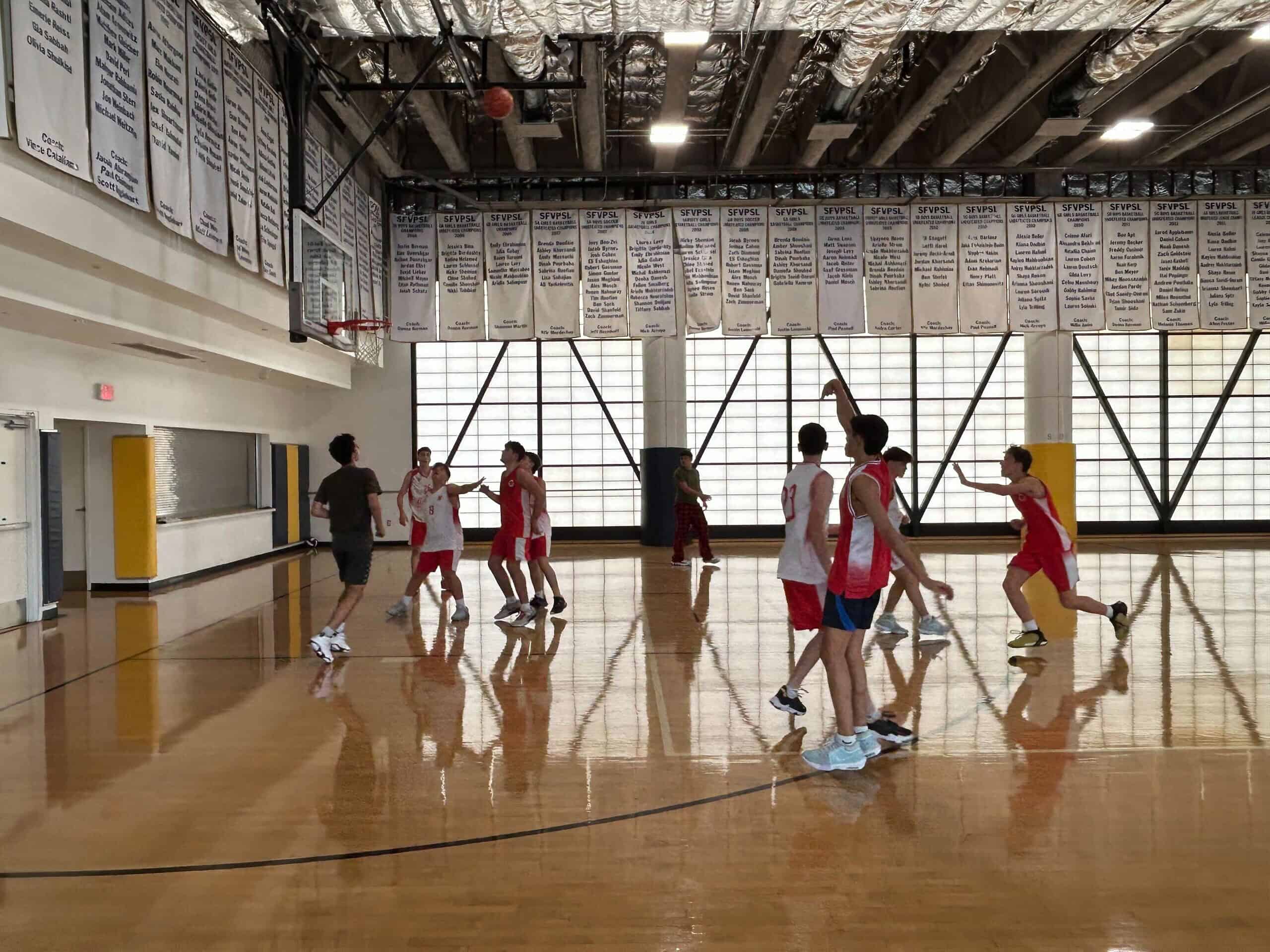
‘Basketball is the best therapy’
Bilanksy is a lifetime basketball player and former assistant coach for Hapoel Tel Aviv, a professional basketball team in Israel that, at the time of this writing, is having a better season than Maccabi.
He grew up in southern Israel and moved back to Kibbutz Mefalsim, near Kfar Aza, when his wife was pregnant. He was offered a job as general manager of the league, which Bilansky said had nine teams and around 200 kids playing basketball before Oct. 7.
Now they have four teams and 75 kids, but it’s his mission to restore it to its former glory.
“This is the mission—to open it for these kids,” he told JNS. “This is the only time that their mind is thinking about something good. To see them smile and laugh is a win for me. Basketball is the best therapy.”
“Playing basketball is something I love,” team member Alon Buksbaun told JNS, sweat seeping through his jersey. “We went through a tragic event, and now we’re doing things we love.”
Many other teammates echoed how happy they were to be playing basketball in Los Angeles and how grateful they were to be reunited after all this time.
“I didn’t see my friends on the team for over six months,” said Ziv Turjanski, another team member, who had been relocated to Eilat after Oct. 7. “It’s strange, it’s weird, but it’s really exciting. I’m very happy to see everyone jumping and smiling and fighting for the ball.”
The team also noted that they were even more excited to go to an NBA game and watch Deni Avdija—the only current Israeli-born player in the NBA; the 23-year-old first played for the Washington Wizards and is now with the Portland Trail Blazers—in action.
“In this moment, they’re just kids being kids,” said Weinstock.
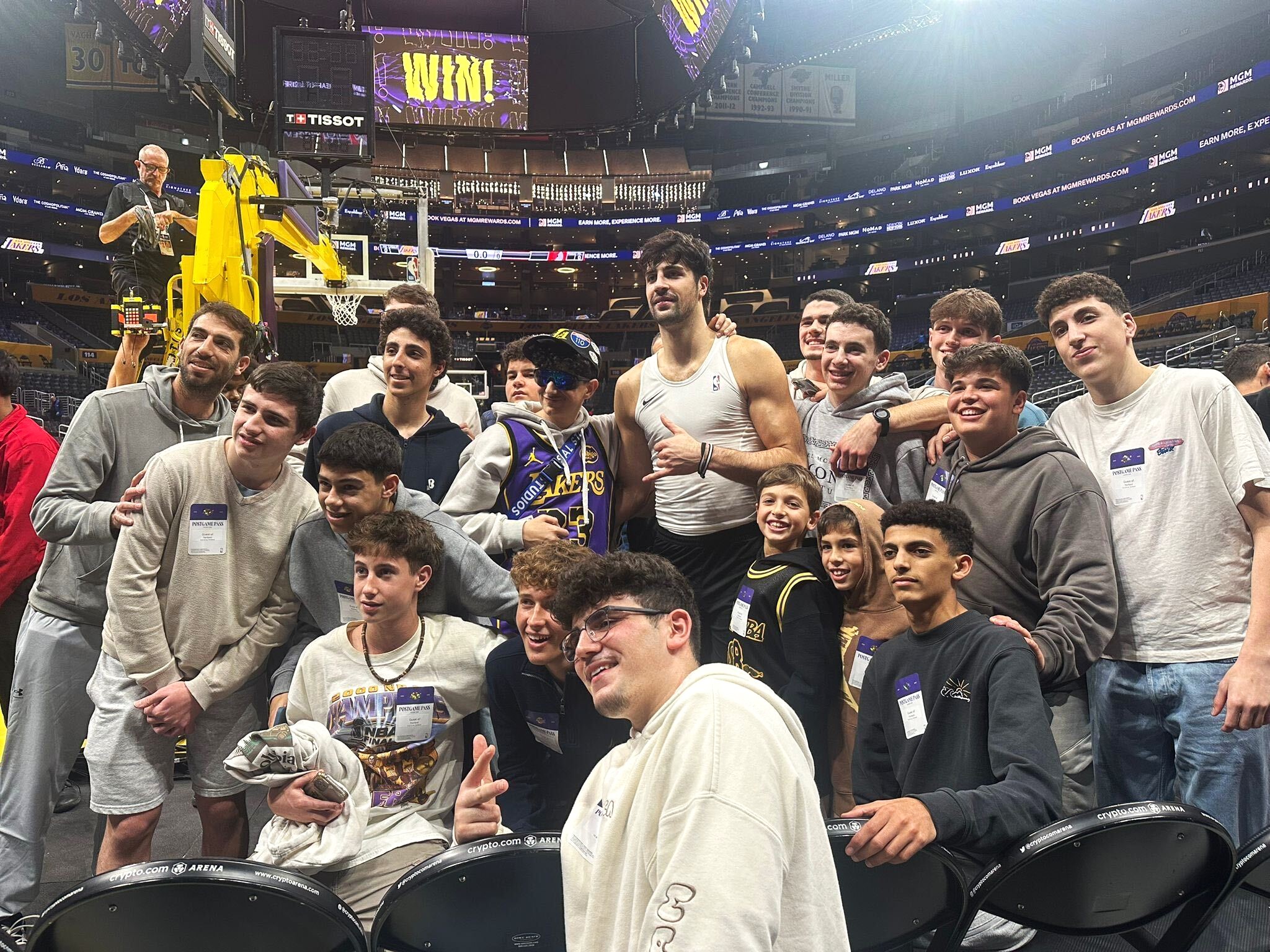
‘I didn’t sleep for three days’
On Dec. 4, Buksbaun played basketball with teammates he hadn’t seen in more than a year. On Oct. 7, 2023, he woke up at 6:30 a.m. in Kibbutz Gvulot to his mother telling him she heard a noise outside. He thought it was just regular missile sirens, like “most of the time.” But by 8:30, he knew it was something different.
“We saw on the news a lot of cars,” he told JNS. “Terrorists are going through Israel, to the kibbutzes of our regional council. So we started texting each other. I sat all day in the shelter, looking at the texts and the news, and it was just horrible because you were helpless. You couldn’t do anything. You’re calling, and no one answers.”
One of those who didn’t answer was Buksbaun’s father, who finally came home around 2 p.m. after driving “as fast as he could” on alternative roads from a neighbor’s place.
Yonatan Ofri also woke up at 6 a.m. on Oct. 7 and rushed with his family to the bomb shelter in Kibbutz Kissufim. By 11 that morning, Hamas terrorists had broken into the kibbutz and attempted to enter the bomb shelter but were held off by his brother for more than two hours until the Israel Defense Forces arrived.
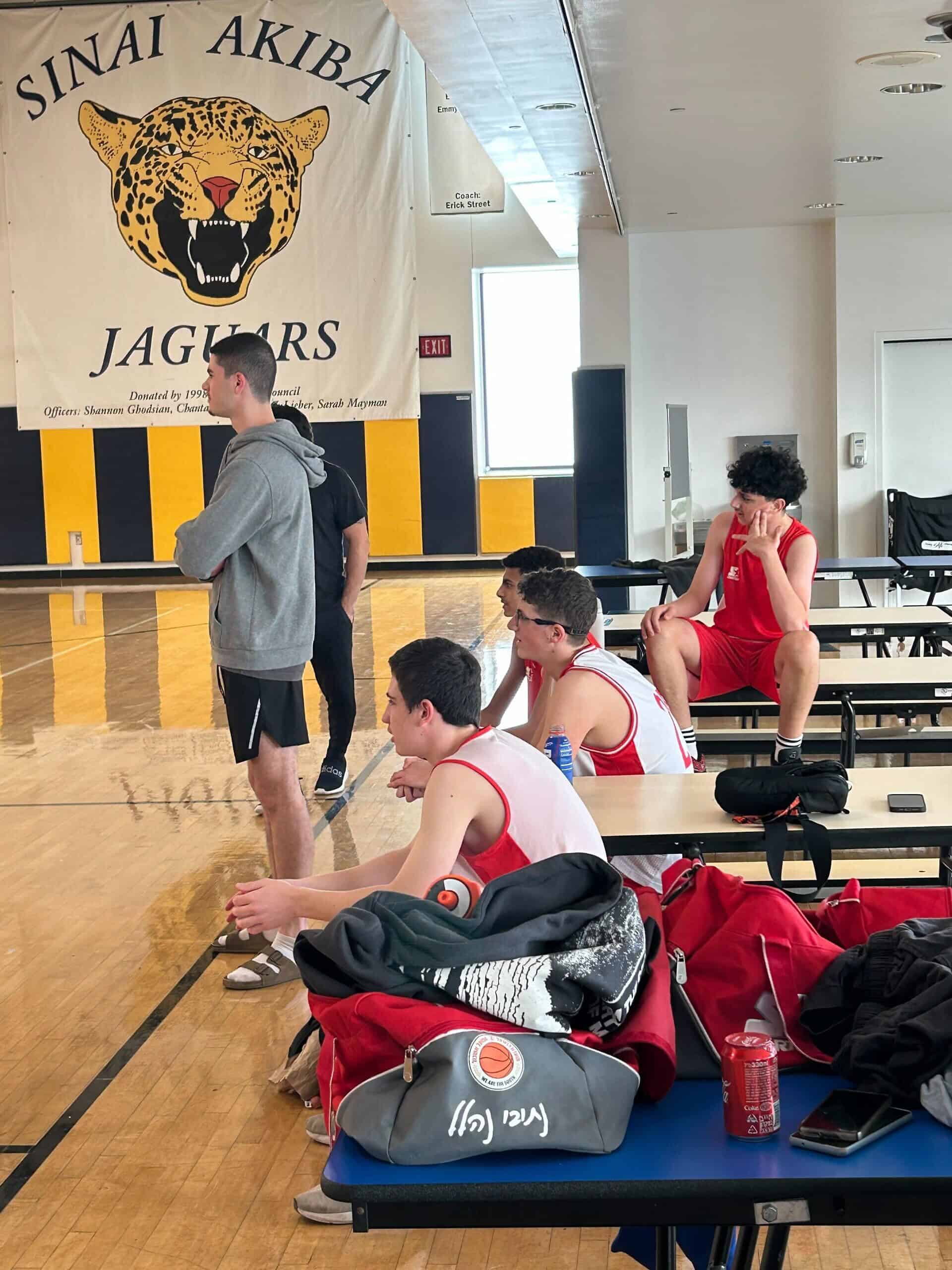
“His brother is a hero,” said Bilansky.
Turjanski’s kibbutz was spared from the attack. He had arrived back in Israel on Oct. 6 from a trip to New England with his family and woke up around 4 p.m. the following day.
“I didn’t know anything until after,” he told JNS. “I was in America until the day before. I didn’t say goodbye to people that were killed. I was in the U.S., and I got back and people died. I didn’t say bye to them.”
Shoham Cohen was unable to scrimmage after someone fell on his left knee and said he doesn’t play basketball much anymore because there isn’t a court in the hotel he’s been relocated to. He attended summer camp with Ofri, loves skiing and snowboarding, and is traveling to Italy in a month.
His best friend and grandmother were murdered on Oct. 7.
“I didn’t sleep for three days,” he told JNS.
Cohen lived in Kibbutz Be’eri. His grandmother was Pessi Cohen, whose house was the location of one of the most prominent hostage standoffs. It was only after they were evacuated that his mother broke the news that his best friend, grandmother and other family members had been killed in the massacre.
He recalled hearing gunshots and screaming at neighboring homes, and his father barricading the bomb shelter door after killing two Hamas terrorists riding motorcycles. Cohen scrolled through his phone while telling the story to find a picture: His family’s jeep had been set on fire.
When the army finally arrived, Cohen and his family went into their living room to discover it wasn’t only the car. “We saw books burnt in the center,” he said. “They tried to burn down the house.”
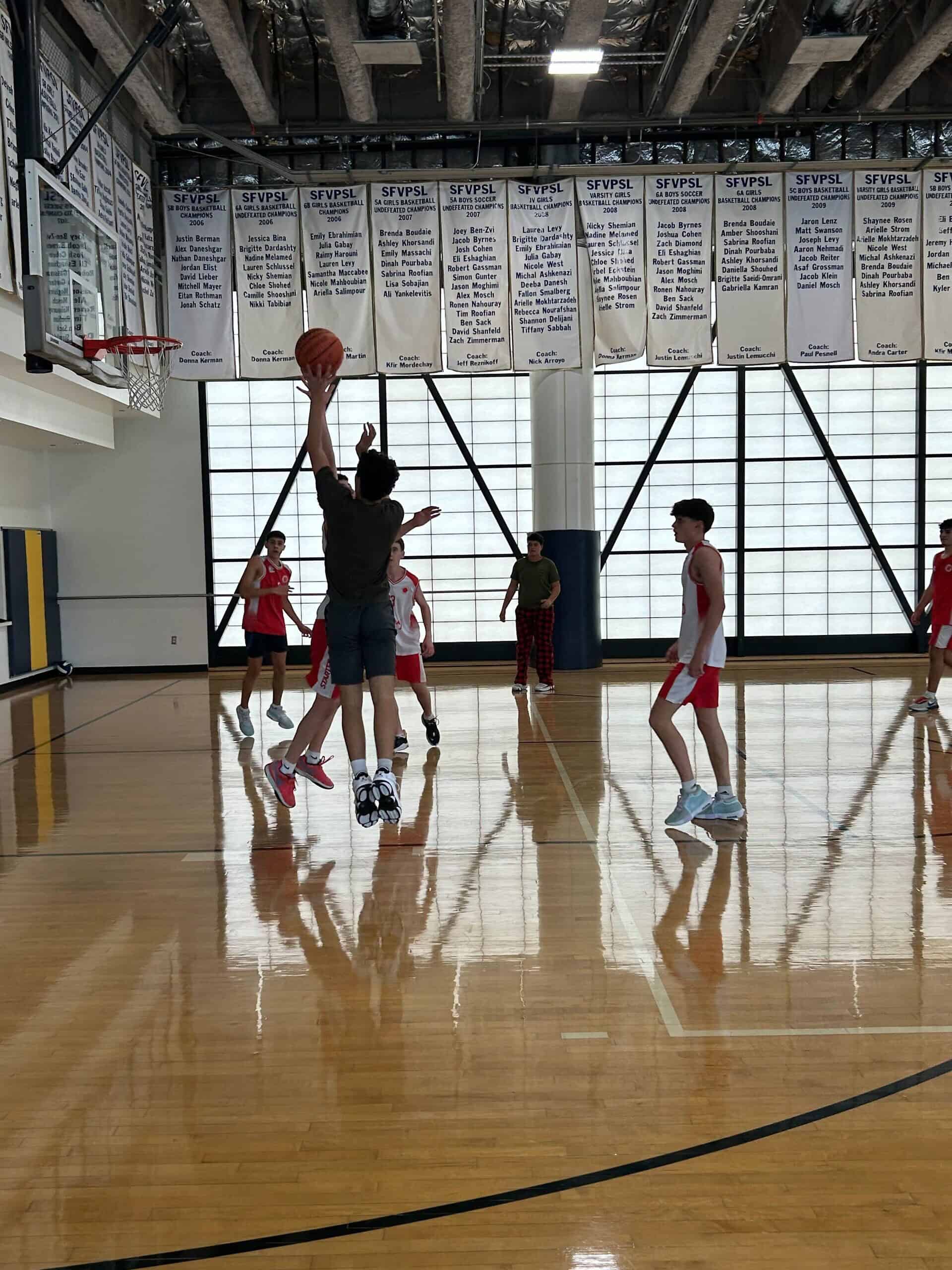
Sherman said he was shocked by how open everyone was sharing their stories. He recounted one time when he was waiting at a traffic light, and one of them just “casually” mentioned being in a bomb shelter.
“When they walk into the room and see the hostage poster, they can point to people and say they know them,” he said.
Despite the horrors they went through, the teenagers told JNS they weren’t going to let Oct. 7 define them.
“It’s hard but you need to move forward,” said Turjanski. “You have to go through.”
“Everything I do, I try to make people remember,” added Cohen. “I want the people around me to know what I lost. But I keep smiling because they wouldn’t want me to be sad.”
‘The magic is real’
After Oct. 7, Weinstock knew she had to go to Israel.
“I had this hole in my heart,” she told JNS. On her volunteer trip, she realized that the work she was doing was going to need to happen again “in another month.” She wanted something impactful and sustainable.
After discovering Project 24 and connecting with Sherman, the two had to figure out the logistics of bringing the team to the United States—an act that was “not inexpensive,” according to Sherman. They reached out to donors, organizations and families to host. Weinstock said it took about “five seconds” to find host families and that there was so much interest they had to turn people away. In addition to the Clippers, the Los Angeles Lakers offered free seats, and Universal Studios offered a VIP tour.
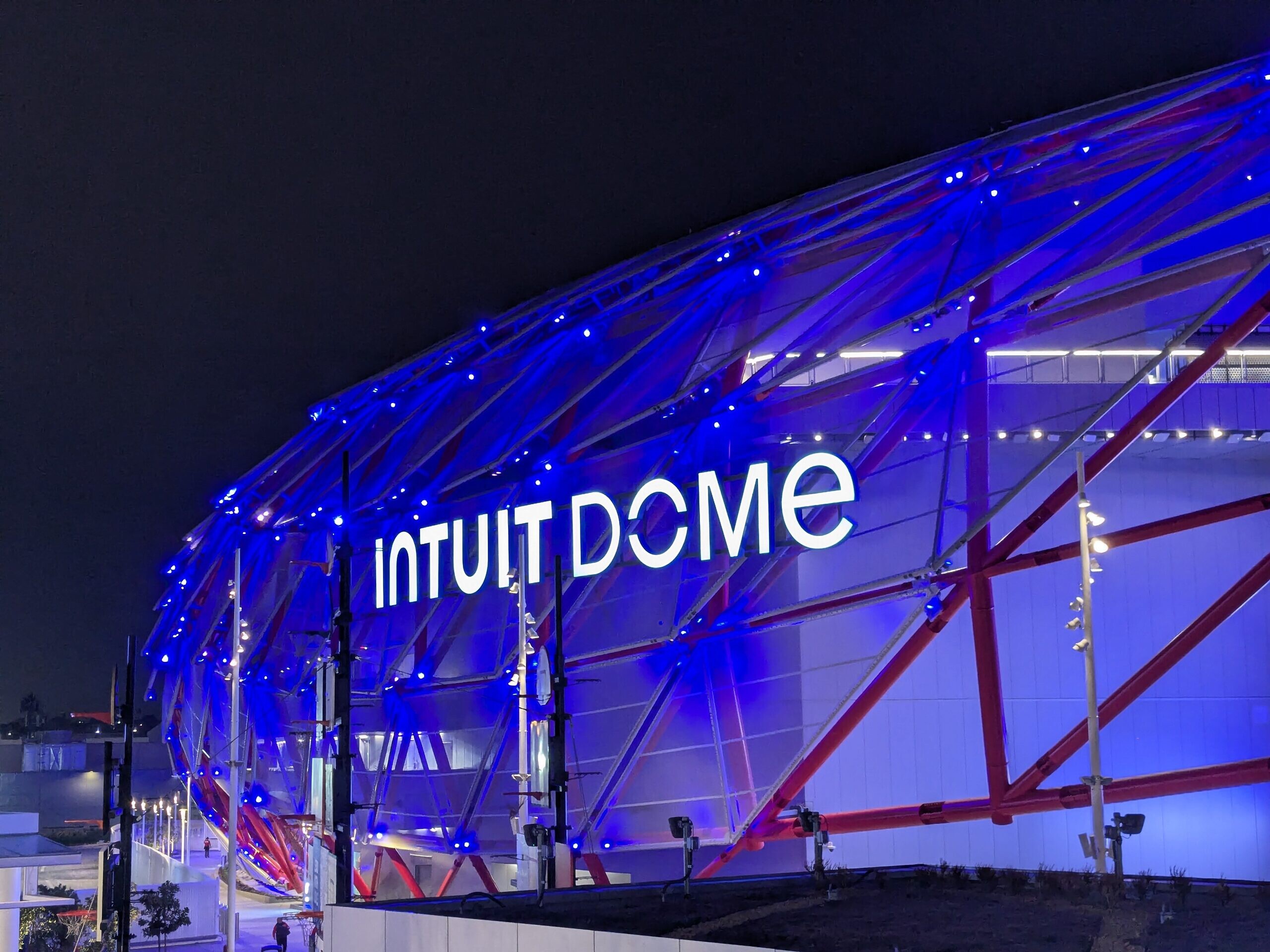
Weinstock said the community showing up has been “magical,” and the team has felt like “an instant part” of her family. Sherman echoed the sentiment, saying Project 24 told him “there will be magic” during his initial talks with the organization.
“You can build an itinerary, but then to see it in action, to see their faces light up when they see the Intuit Dome for the first time, and the day-school kids are asking when they can come back, they are part of the Sinai family,” Sherman told JNS. “The magic is real, the magic is happening.”
He told JNS that the response has been so overwhelmingly positive that they want to continue to participate, especially now that “a connection has been made between the community and this team”
“We want to be a part of their lives,” he said. To that end, Sherman said they may try to make this an annual event, but even more so, something that can be shared with the community at large.
“I hope this can be a model for other communities to do this as well,” he told JNS. “When you put the effort into the people, it is the biggest investment that you can make.”


























